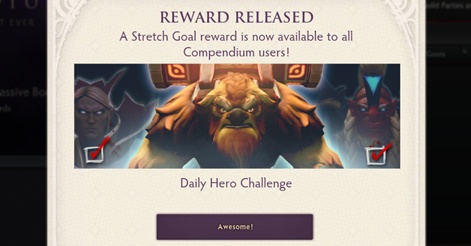Pepe Agell is the VP of business at Chartboost.
This article is part of an ongoing partnership with Chartboost. You can read more of its advice in terms finding new players and monetising audience via its Playbook blog.
Real-time multiplayer games have potential to become big business on mobile.
The emergence of Clash Royale as another billion dollar property from Supercell and the rise of mobile eSports like Vainglory have alerted mobile developers to the power potential of the genre.
Still, beyond a few instances, the genre has struggled to take off due to both the technological challenges of making real-time multiplayer games for mobile (e.g. connecting thousands of players across the world successfully without in-game lag ruining the experience) and the monetisation struggles (e.g. how to get players to pay or watch an ad in real-time).
While most single-player mobile games let players spend at will (between levels and the like), a poorly considered monetisation mechanic in a multiplayer game can turn players off quickly. And just as fast as the community embraces a game, they can also dismiss it.
When it comes to monetisation mechanics in this growing genre, it's essential to create a consistent revenue stream while appealing to both spenders and non-spenders equally.
Here are three things to consider before launching a real-time multiplayer mobile game:
1. Design for a fair fight
The most successful real-time multiplayer games are based on skill. Games like League of Legends, DOTA 2 and CS:GO have become hits because they reward the best players.
Though this isn't a monetisation mechanic per se, games that have the depth to reward the most skillful players have historically monetised well across the platform.
In 2015, for example, DOTA 2 was raking in $18 million a month thanks in part to its reward system.

Mobile developers entering the multiplayer space should consider investing time in creating tactically and strategically deep games. This will, in the long run, make it more likely to encourage players to spend.
2. Use in-app purchases
As with all free titles, devs need to earn money in-game by selling content to players through in-app purchases to be successful.
But while a single player free-to-play game will reward high spenders with the best content outright (such as enough currency to buy a premium item), an IAP purchase in a multiplayer game should hand players a useful tool - like a good rare item - that will only work if they play well.
This is important, because if the game in this genre becomes "pay to win," players will dismiss it.
Ad-funded monetisation is a great way to create a revenue stream without unbalancing the game in the multiplayer genre.
Clash Royale, for example, allows players to buy premium currency to unlock chests with random cards in them. By using an element of chance, Supercell gives low spenders or non-spenders as much chance to unlock a powerful rare card in their chests - stopping high spenders from getting an unfair advantage.
3. Integrate ads thoughtfully
Ad-funded monetisation is a great way to create a revenue stream without unbalancing the game in the multiplayer genre.
By integrating interstitial ads at the end of match-ups or in places where players wait (such as a game lobby), devs make additional income without forcing any spend in-game.
Another way to monetise is by actually building the ads into the game itself: putting brands on billboards in the game with native ads, for example.
In-game ads could also be integrated into a spectator mode for a multiplayer game, meaning anyone who watches a multiplayer match-up on their device could be monetised through the gameplay stream.
By considering the balance of multiplayer games carefully, designing a game that rewards skill and making sure that monetisation mechanics support both of those things, developers can begin laying the foundations for a successfully monetising, real-time multiplayer game before going to market.























